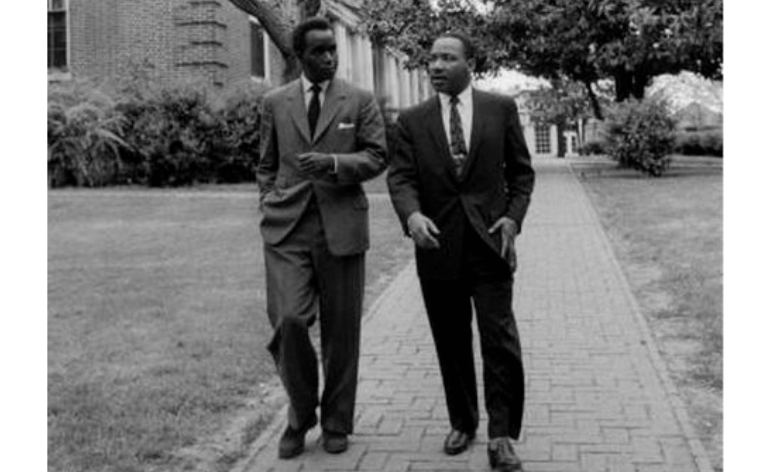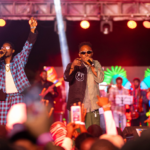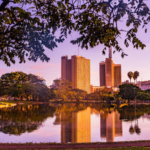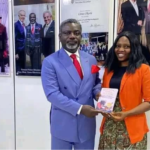Kenneth David Kaunda – The Father of Zambia

Kenneth David Kaunda, Zambia’s emancipator and champion of independence, died on Thursday, June 17, 2021, at the age of 97. Kaunda, who is approaching a century old, is widely regarded as not just Zambia’s liberator but also one of the African decolonization and independence struggle legends.
Kenneth David Kaunda was born on April 28, 1924, in Northern Rhodesia, at the Lubwa Mission near Chinsali (now Zambia). His father was a clergyman and teacher who had left Nyasaland (now Malawi) in 1904 to teach in colonial Zambia, and his mother was the first African woman to teach in colonial Zambia. Kenneth’s parents were both teachers in the Bemba ethnic community in northern Zambia. He had his early education there and graduated from high school in the early 1940s. He, like the majority of Africans in colonial Zambia who rose to middle-class positions, began to teach, first in colonial Zambia and then in Tanganyika in the mid-1940s (now Tanzania).
In 1949, Kaunda returned to Zambia. He joined the African National Congress (ANC), Northern Rhodesia’s first significant anti-colonial organisation. In the early 1950s, he became the ANC’s secretary-general, also serving as the organization’s top organising officer, putting him in direct touch with the movement’s rank and file. He parted with the party’s chairman, Nkumbula, and became president of the Zambia African National Congress from 1958 to 1959.
The new organisation was utilised by Kaunda to establish a hardline campaign against the British ambition for a federation of the three central African colonies—Southern Rhodesia, Northern Rhodesia, and Nyasaland. African leaders rejected and feared such a federation since it would give ultimate control to a white minority of settlers. Kaunda quickly began “positive nonviolent action.” This campaign of civil disobedience was known as the “Cha-Cha” movement, and it was inspired by Kaunda’s visit to Martin Luther King Jr. Participants in this effort set fires and obstructed major highways. As a result, Kaunda and other militant commanders were imprisoned for nine years. Their imprisonment, on the other hand, elevated them to the position of national heroes in the eyes of the people. This resulted in widespread support for Zambia’s independence movement and Kenneth Kaunda’s dominant position.

On January 8, 1960, the colonial authority released Kaunda from prison. He was elected president of the United National Independence Party (UNIP) towards the end of that month. The British colonial authorities invited Kaunda and several other UNIP leaders to a conference in London in December 1960 to review the situation of the three colonies. The British administration announced early the next year that formal decolonization of Zambia would begin.
Kaunda advanced through the ranks through a series of elections and agreements with the colonial authority, and the Zambian independence struggle became more realistic. He was elected to the Legislative Council on October 30, 1962. In 1963, Kaunda assumed a continental position as President of the Pan-African Freedom Movement for East, Central, and Southern Africa. He was named Prime Minister in 1964 and later that year became Zambia’s first President.
At the moment of independence, Kaunda was praised as Zambia’s one real hero, and his allure lasted for some time before the people became disillusioned with their national father. Kaunda, like other African leaders, confronted numerous challenging post-independence issues, particularly tribalism. He was successful in keeping the negotiations going on this topic, saving Zambia from the horror of tribal civil war. Nonetheless, interparty political violence happened during the 1968 elections, which returned Kaunda and his party to office. In reaction, he instituted a one-party rule in Zambia in 1972, and in 1973, he enacted a new constitution that assured his party’s unrivalled rule.
In the 1970s, Kaunda’s government used a system similar to that of Nigeria, in which the country’s economy was based on the export of a single raw element, copper. The administration prioritised copper production over agriculture. Copper prices soon fell, and an economic crisis loomed. In foreign policy, Kaunda led other southern African countries in opposing the white-minority governments of Rhodesia (now Zimbabwe) and South Africa. In the 1970s, he placed economic sanctions on Rhodesia at significant expense to his own economy, and in the late 1970s, he permitted black nationalist militants led by Joshua Nkomo to use Zambia as a base.
By the late 1980s, there was considerable popular discontent and viable political opposition.
Kaunda legalised opposition parties in 1990, paving the way for free, multiparty elections in 1991. In the late-year elections, Kaunda and the UNIP were soundly beaten by the Movement for Multiparty Democracy (MMD). Frederick Chiluba, Kaunda’s successor, entered power on November 2, 1991.
Kaunda and Chiluba had such disagreements after his administration that Kaunda planned to run against him in 1996 before constitutional reforms made him ineligible. Kaunda was arrested on December 25, 1997, on charges of encouraging an attempted coup earlier that year in October. Six days later, he was released, but he was placed under house arrest until all charges were dropped in June 1998.
Aside from the presidency, Kaunda has garnered numerous honours and accomplished a great deal. Kaunda was named the Balfour African President-in-Residence at Boston University in the United States in 2002, where he remained until 2004. Chiluba’s successor, President Levy Mwanawasa, bestowed the Grand Order of the Eagle on him in 2003. Kaunda also earned the Ubuntu Award in 2007. Kaunda is also recognised for his HIV-fighting activities following the death of one of his children from the disease. He established the Kenneth Kaunda Peace Foundation in 1991, which is dedicated to the establishment of peace and conflict settlement on the African continent. In South Africa and Windhoek, he has multiple roads and a community named after him. The Kenneth Kaunda International Airport in Lusaka, Zambia, also pays tribute to Kaunda. He was also recognised as an educational hero, serving as the first chancellor of the University of Zambia and officiating at the inaugural convocation.
Kaunda will be remembered warmly for his role in the liberation of not only Zambia but all of Southern Africa. He is the last of a generation of African liberators to perish. He was a symbol of Africa.
Sarauta Icons takes a deep dive into the lives of individuals who made an impact on African society. You can read about other icons here.












